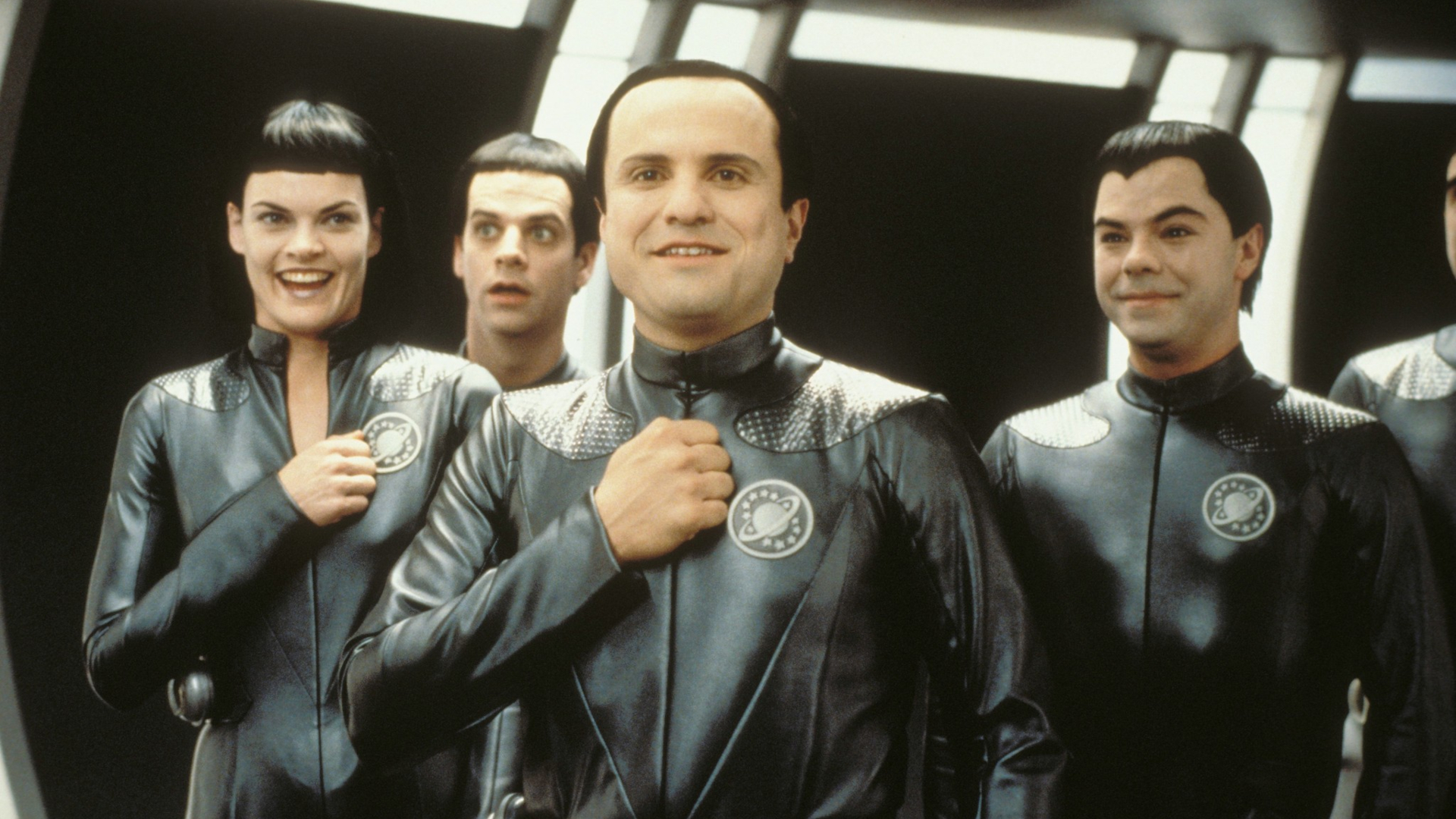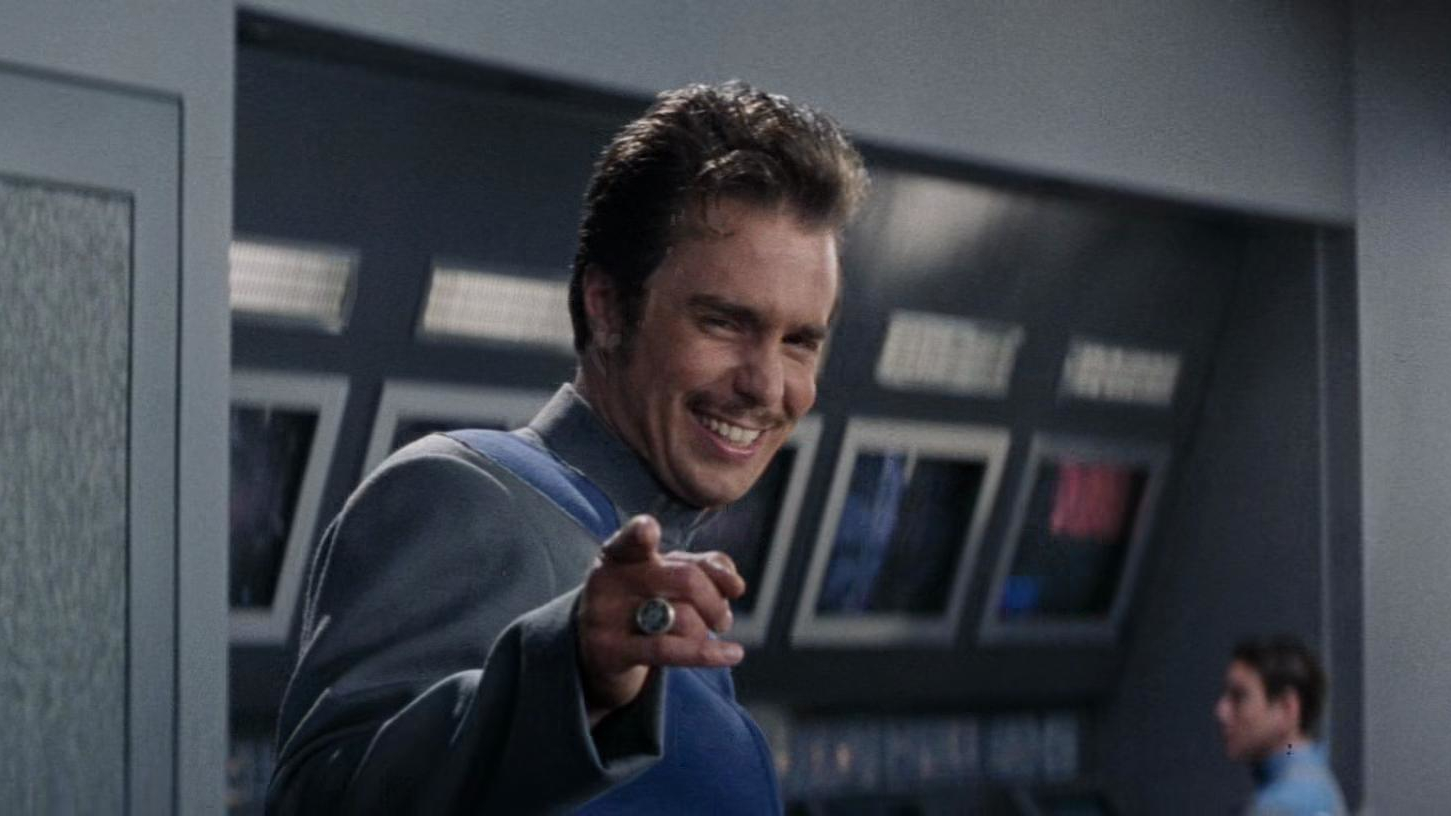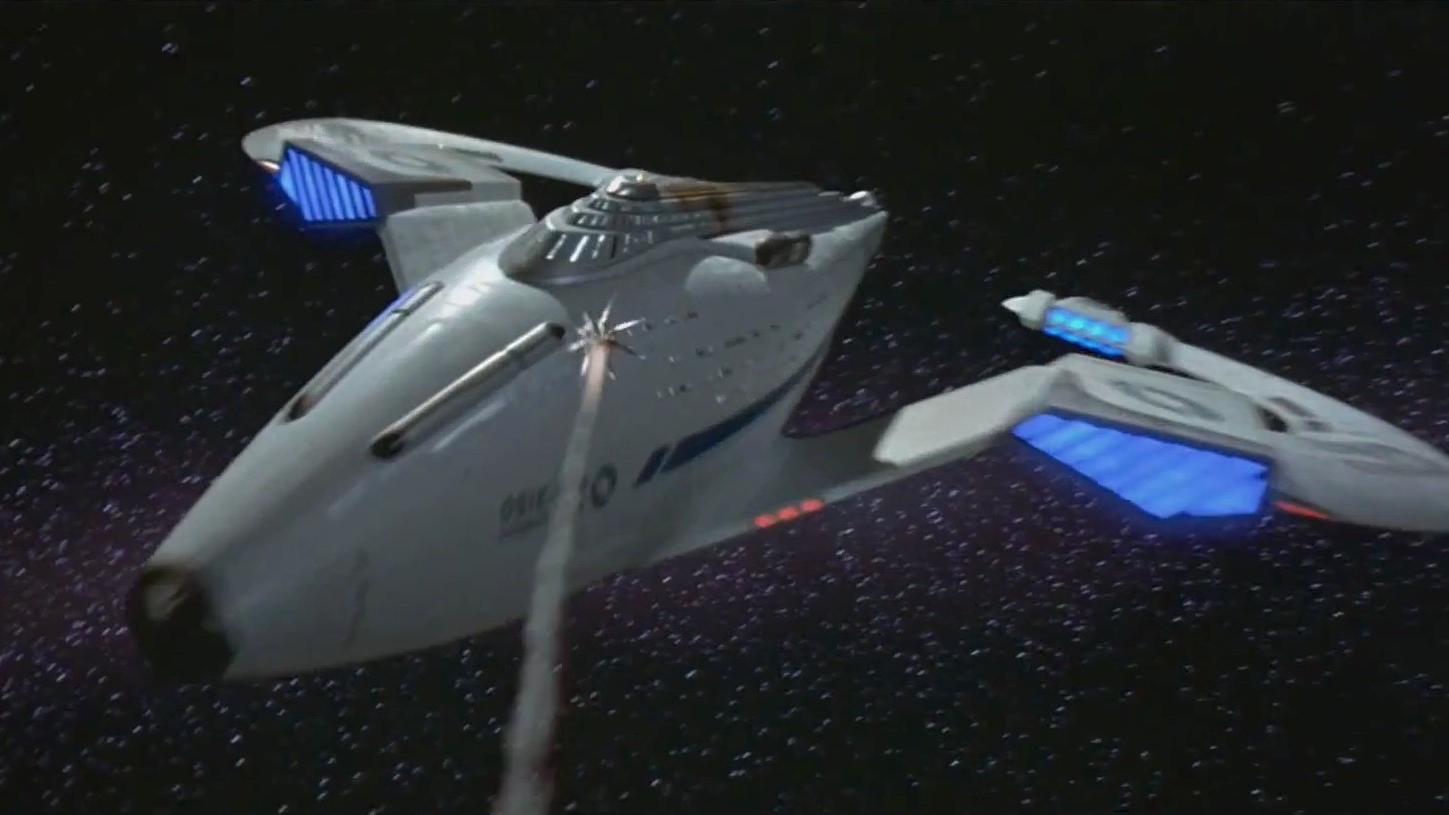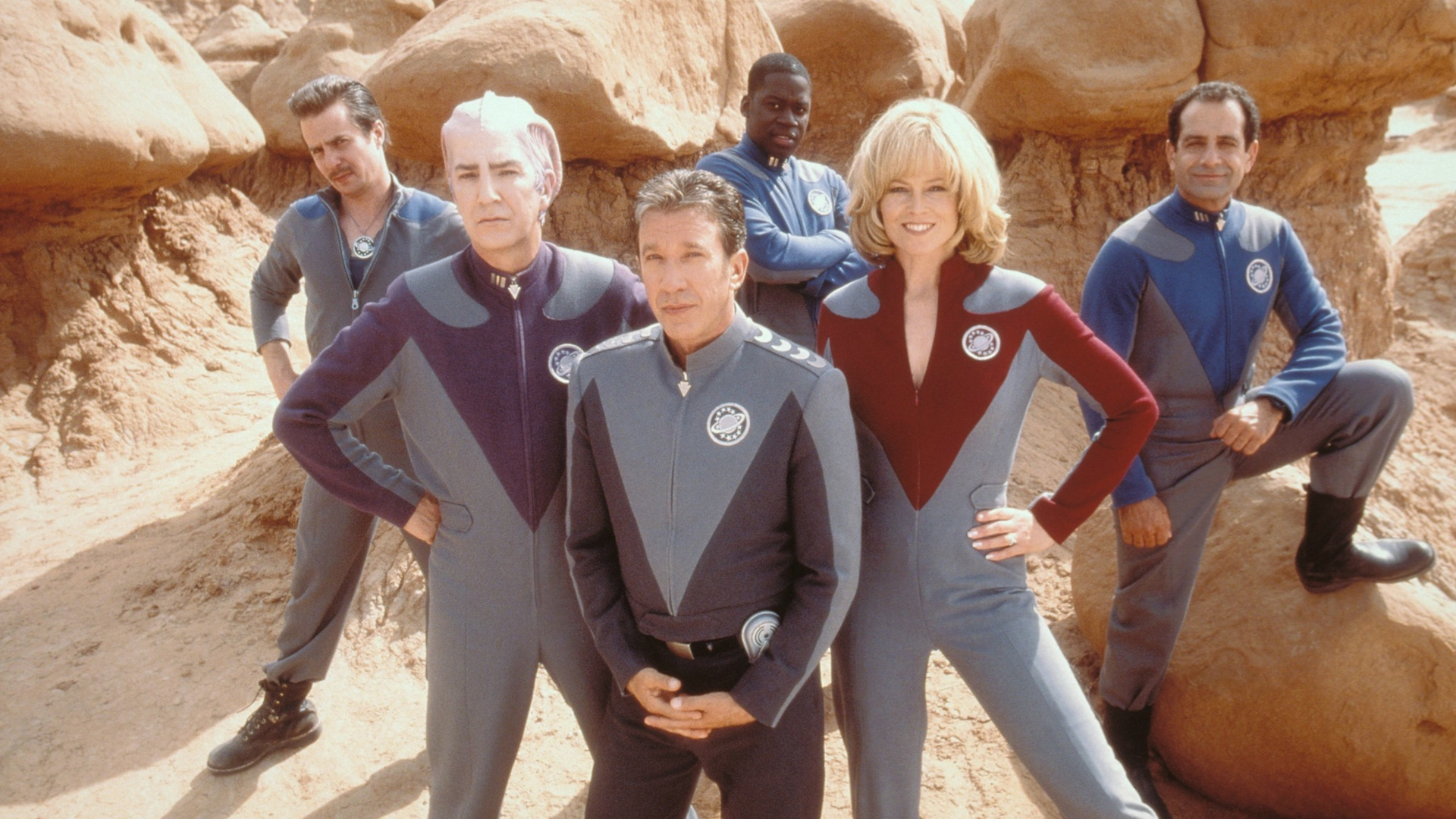By the time “Star Trek” entered its fourth decade in the late ’90s, it had long been a target for comedians looking for an easy gag. Even William Shatner, a man who’s more synonymous with boldly going than pretty much anyone, fronted a 1986 “Saturday Night Live” sketch in which he implored fans to “get a life”.
But on Christmas Day 1999, a movie arrived that poked gentle fun at the franchise’s clichés, while also celebrating everything that makes “Trek” great. Some — including “The Next Generation” star Wil Wheaton — have described “Galaxy Quest” as the best of all the “Star Trek” movies, while JJ Abrams, director of the 2009 “Star Trek” reboot, admitted that one of his own scenes was influenced by the comedy spin-off. Talk about replicating your cake and eating it.
It’s informative to contrast “Galaxy Quest” with the Austin Powers movies. Both arrived within the space of a few years, and had a behemoth of a long-running franchise in their sights — in Powers’ case, the James Bond series. But with its hollowed-out volcano lairs, monologuing villain and promiscuous hero, Mike Myers’ spoofs became a blueprint for what subsequent 007 movies should //not// do. Along with the grittier Jason Bourne saga, Powers’ legacy was a post-“Die Another Day” reinvention that saw Daniel Craig’s MI6 agent operating in a rather more grounded world, where giant space lasers were most definitely off the agenda.
“Galaxy Quest” was different. It is, first and foremost, a quality piece of space opera, with A-list visuals and prosthetics (courtesy of industry leaders Industrial Light & Magic and the Stan Winston Studio), and a plot that would work — more or less — if you excised the gags completely. The cast is also higher profile than any of the “Star Trek” movies, fronted by “Home Improvement” star Tim Allen, top British thesp Alan Rickman, and a bona fide sci-fi legend in “Alien“‘s Sigourney Weaver. “Galaxy Quest”, one of the earliest movies released by Steven Spielberg’s fledgling DreamWorks SKG studio, was never meant to be some low-budget spoof.
In that regard, it shares plenty of DNA with “Ghostbusters”, a comedy movie that also happens to be an action blockbuster — perhaps unsurprisingly, that movie’s co-writer (and “Groundhog Day” director) Harold Ramis was originally lined up to call the shots on “Galaxy Quest”. Creative differences subsequently prompted Ramis to depart the film, but his replacement, the comparatively unknown Dean Parisot, also understood how to walk that fine line between drama, big-screen spectacle, and laughs — mainly by playing everything straight.

But “Galaxy Quest” owes even more to “¡Three Amigos!”, the broad 1986 comedy in which a trio of has-been silent movie stars (played by Steve Martin, Chevy Chase, and Martin Short) are recruited to save a Mexican village from bandits, after its residents mistake the actors for real-life gunslingers.
The alien Thermians come from slightly further afield (the Klatu Nebula to be precise), but — much like those villagers — they’ve been inspired by “historical documents” to call on the crew of the NSEA Protector to help them in their fight against interstellar warlord Sarris. It would have been a sound idea, too, if only Commander Peter Taggart, Lieutenant Tawny Madison, Dr Lazarus, and the rest of the crew weren’t characters from a 1980s TV show with shonky sets.

This meta concept opens up a whole avenue for storytelling. Suddenly, “Galaxy Quest” isn’t just limited to having fun in the sci-fi genre, because it can also satirize all those genre stars whose careers have become defined by a single TV show or movie. You don’t have to look too hard to find real-life analogs for leading man Jason Nesmith (Allen), who constantly steals the limelight from his co-stars. Or for Alexander Dane, the Shakespearean actor who wants everyone to know there’s much more to his resumé than regurgitating catchphrases while wearing alien prosthetics. Perhaps the cleverest creation of all is Guy Fleegman (played by future Oscar-winner Sam Rockwell), a former bit-part player who spends the entire movie paranoid he’s about to die.
He’s a redshirt in all but name, and that deep understanding — and affection — for “Trek” lore is at the heart of “Galaxy Quest”‘s brilliance. Of course, those references are designed to avoid attracting the attention of Paramount lawyers, and the script negotiates potential copyright infringements in numerous ingenious ways: the Enterprise’s sickbay becomes the “medical quarters”, the transporter becomes the “digital conveyor” and the chief engineer is now a “tech sergeant”. The production designers even added some pre-emptive protection to the ship’s hull, giving lead starship the Protector the serial number NTE-3120. The NTE stands for “not the Enterprise”, the idea being that — were anyone to ask — they could quite legitimately say it wasn’t the Enterprise.

“Galaxy Quest” has stood the test of time because it laughs with, rather than at, its source material. While other movies of the era might have mocked hardcore fans who read technical manuals, or spend their weekends cosplaying as their heroes, “Galaxy Quest” turns Brandon (Justin Long) and his friends into heroes. Without them, the Protector crew would never have survived, and the movie’s portrayal of fandom is years ahead of the curve, pre-empting a mainstream explosion of geek culture in the 21st century.
It took a while for “Galaxy Quest”‘s influence to be felt by “Star Trek”, as the final seasons of “Voyager“, the prequel series “Enterprise”, and the “Next Generation” crew’s (then) final outing, “Nemesis“, stuck closely to a long-established “Trek” formula. But when JJ Abrams took the helm for his 2009 “Trek” reboot, he borrowed heavily from “Galaxy Quest”‘s sense of fun — if he could have justified stopping a core implosion with just a single second left on the clock, he probably would have.
A decade later, the recently ended “Star Trek: Lower Decks” successfully resurrected the “Galaxy Quest” formula of mining jokes on the final frontier, while treating it with complete reverence — just as Seth MacFarlane did in “The Orville”. Indeed, both shows have done this so well that you wonder if there’s any place for the proposed “Galaxy Quest” TV spin-off that’s been in development for years.
Besides, why would you risk tarnishing the memory of a movie that exists as a perfect celebration of science fiction fandom. Because, to paraphrase Dr Lazarus, by Grabthar’s hammer, it will be remembered — for another 25 years and beyond.
“Galaxy Quest” is available to stream on AMC+ in the US and Prime Video in the UK. You can also watch the brilliant retrospective documentary “Never Surrender” on Prime Video in both the US and the UK.
Article by:Source























